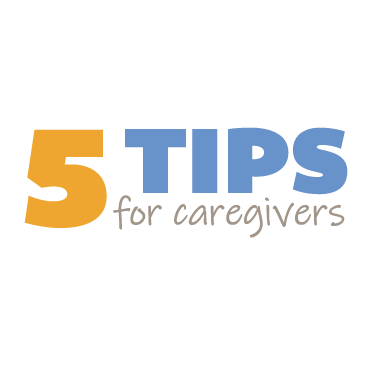
It seems as though everyone makes New Year’s resolutions – eat healthy, clean out the house, exercise more, the list could go on and on. And despite our best intentions, these resolutions are usually out the window before we’ve even turned the calendar over to February. However, resolutions can be a great way to start off the New Year when you can keep them! Here are 5 resolutions for caregivers that you can actually keep!
Delegate more.
Does your to do list often seem infinite? Do you find yourself wishing there were more hours in the day to get everything done? Delegate! Let other people help you. It can be hard to let others step in when it’s “quicker and easier” to do it yourself, but taking even a few small burdens off your plate can help ease your stress. Create a list of chores or activities that you can use assistance with so that when a friend calls to offer help you’ll have a concrete answer. Even in the midst of a pandemic, friends could help deliver groceries, or take your loved one for a walk. Or better yet, call them to ask! If you feel like a burden, reach out to a professional service. Maybe someone clean the bathrooms once a month would be a huge relief, or scheduling a respite volunteer would allow you a few hours to do something you enjoy.
Schedule “me” time.
This leads into the next resolution: take at least a little time for yourself. You may be thinking, that’s funny – I don’t have any time to begin with, when will I possibly have more “me” time? Think about what recharges you, and try to figure out a small way to work that into your regular routine. Miss going out to lunch with friends? Maybe a weekly date is too much, but you could arrange a family member to stay with your loved one while you met friends for a socially distanced lunch (or over Zoom!) on the first Saturday of each month. If it’s too hard to schedule, aim for a one-on-one phone date with a friend. Or maybe it’s simply carving out 5 minutes before bed to pray, meditate, or decompress from the day. Whatever it is, be sure to put your time in the schedule.
Laugh at something each day.
While harder to schedule, make sure you’re finding a way to find the humor in your day. It can be hard to see the glass as half full, when your day has started with battles with your loved one over getting up and getting dressed, not eating breakfast, and refusing their meds. Try to take a step back from the situation; if you were a fly on the wall, would it have seemed a bit like an Abbott and Costello routine? Or perhaps it’s worth taking a minute at the breakfast table to talk about a favorite joke or even just make silly faces. Maybe you want to schedule your “me” time to include a little comedy – watch a favorite show or simply read an old comic strip.
Make your doctor’s appointments.
Another way to take care of yourself is to prioritize your health. Remember, you cannot be an effective caregiver if you fail to stay healthy! If it’s been a while since you’ve seen the doctor, schedule a check-up today. Even just a virtual visit! Schedule – and keep! – your appointments to take care of yourself. And if you do get sick? Allow yourself time to rest and recuperate before jumping right back to all of your caregiving duties.
Spend quality time with your loved one.
It’s easy to get wrapped up in your caregiving duties and to do lists, and forget to actually spend some quality time with your loved one! While these duties do have to get done, try to squeeze in a little fun too. Something as simple as flipping through an old vacation photo album and talking about memories of the trip can be fun and nostalgic for you both. Pick up ice cream on the way home from a doctor’s appointment and sample a new flavor. Even something little can give you just enough time outside of your daily routine to connect with your loved one.
Author
Carrie Idol-Richards is the Communications Director at Insight Memory Care Center.




